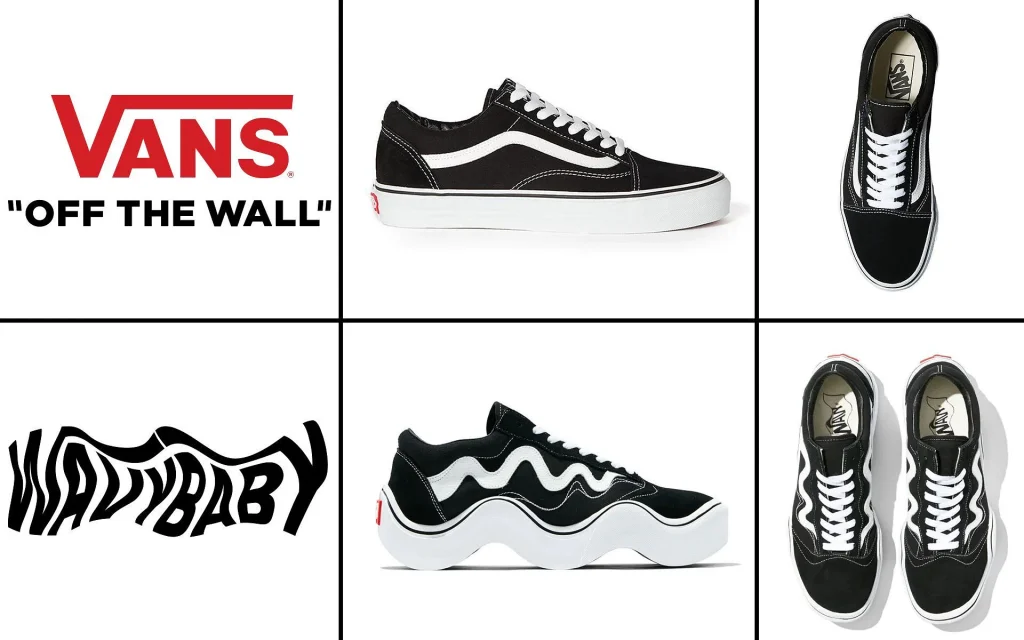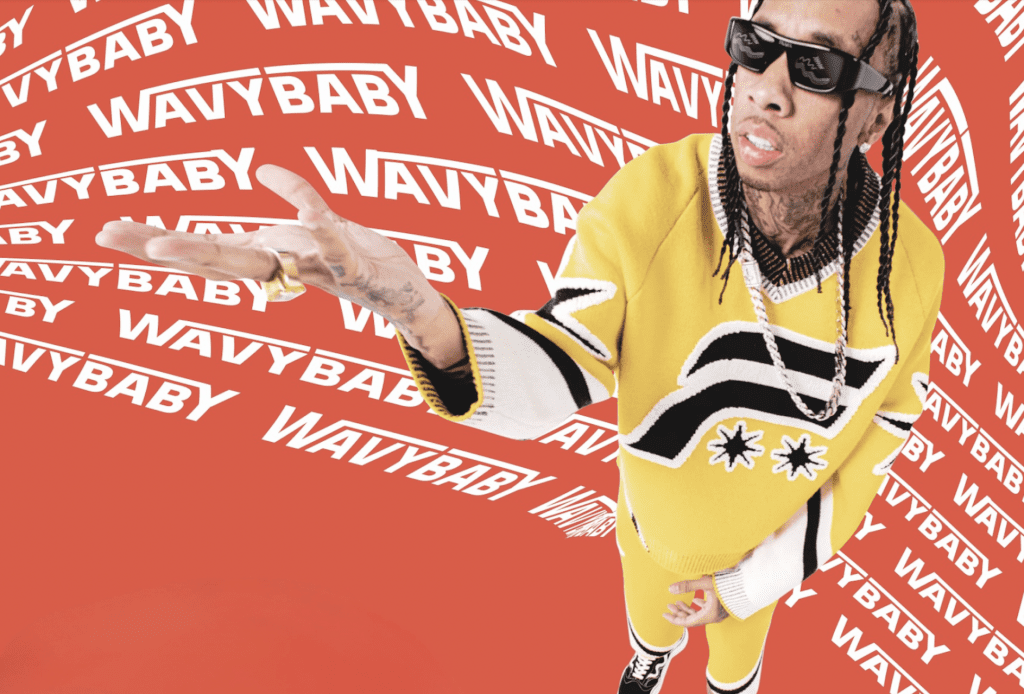MSCHF is calling on a New York federal court to stay a recent preliminary injunction order that requires it to refrain from marketing, displaying, offering up and/or fulfilling existing orders for its allegedly infringing Wavy Baby sneakers. According to a motion to stay dated May 20, counsel for MSCHF argues that the court should limit the scope of the April 29 preliminary injunction awarded to Vans, namely, the prohibition on promotion of Wavy Baby (and the escrow requirement) while MSCHF pursues an expedited interlocutory appeal to the U.S. Court of Appeals for the Second Circuit. Among other things, the injunction “enjoins MSCHF from promoting its Wavy Baby artwork by displaying it on its website, on its mobile app, and in upcoming art exhibitions.”
Setting the stage in the newly-filed motion, MSCHF claims in the wake of the court’s preliminary injunction order, it has been “forced to remove all references to Wavy Baby [from its website and mobile app],” thereby, restraining its speech. Beyond that, MSCHF asserts that the Vans’ successful bid for an injunction has served to restrain its “forthcoming artistic expression, including by prohibiting MSCHF from displaying its Wavy Baby art at MSCHF’s upcoming solo exhibition at the Perrotin Gallery (from November 3 to December 23, 2022) and at the exhibition at Art Basel (from December 1 to December 3, 2022).” Against this background, the Brooklyn-based art collective-slash-sneaker brand claims that the injunction order is an “unconstitutional prior restraint on [its] artistic expression.”
Making its argument that the court should stay the order in part until the Second Circuit can hear its appeal, MSCHF claims that it is “likely to succeed on the merits of its appeal because Wavy Baby is an artwork protected by the First Amendment and there are at least substantial questions going to the merits of MSCHF’s First Amendment defense in this case.”
Highlighting “the important First Amendment issues implicated in this case,” MSCHF asserts that during the April 27 hearing on Van’s motion for a temporary restraining order and preliminary injunction, “the Court recognized the serious questions going to the merits of Vans’ claims and MSCHF’s First Amendment defense,” with the court stating that “if [MSCHF] had one pair of Wavy Baby shoes that were in the Metropolitan Museum or the Brooklyn Museum that would be one thing, and if you had a million issues of Wavy Baby shoes that would be another. But you’re at 4,000 which is not exactly Brooklyn Museum rare Calder on the one hand, nor is it on the other side a million pairs of shoes on the other. So, you’re somewhere in between.”
MSCHF argues that “the Court’s recognition that the sale of a limited edition of only about four thousand Wavy Baby works falls between the extremes cited by the Court shows that this is a close question, which means the significant First Amendment concerns should weigh in favor of a stay to permit the Second Circuit to address the merits.”
MSCHF further argues that a stay of the injunction is warranted as it “effectuates an unconstitutional restraint on speech.” By forcing MSCHF to remove the archival images of and references to the Wavy Baby sneakers from its website and app and preventing MSCHF from displaying its art in art museums and galleries, MSCHF argues that “the injunction uniquely impacts [its] speech and will do nothing to prevent any harm, let alone irreparable harm, to Vans (especially given that images of Wavy Baby already proliferate on the Internet and in [MSCHF collaborator Tyga’s] Freaky Deaky music video).”

If anything, allowing MSCHF “to identify itself on its website and app as the source of the Wavy Baby work will serve the interests of justice because it will further clarify what is already clear— that MSCHF, and not Vans, is the source of Wavy Baby,” the company contends. “Allowing MSCHF to retain the images of Wavy Baby on its website and app as a source identifier is thus likely to mitigate any harm to Vans rather than cause any harm to Vans.”
Finally, MSCHF takes issue with the court’s order that it escrow all of its revenue from Wavy Baby “so that . . . [MSCHF] may return those funds to customers who ordered [Wavy Baby] under the mistaken belief that Vans was the source of the shoes or otherwise approved or sponsored [Wavy Baby].” The defendant argues that “neither Vans nor the court have cited any legal authority that would permit the court to require such an extraordinary and punitive measure – nor could they, because no such authority exists.”
In addition to MSCHF finding “no cases where a court has ordered a purported trademark infringer to escrow its gross revenues for any purpose,” counsel for the company alleges that requiring it to escrow of funds for “the purpose of ‘return[ing] those funds to customers’ is inappropriate because it is unrelated to the remedies sought by Vans.” For example, MSCHF states that Vans “has not sought – nor could it seek – restitution to purportedly confused consumers.” Moreover, MSCHF argues that “none of the purchasers of Wavy Baby have reported to MSCHF any confusion as to the source of the works they purchased.” Accordingly, MSCHF respectfully requests that the court also rescind the portion of the order requiring MSCHF to place funds into escrow.
MSCHF’s filing comes on the heels of Vans asking a New York federal court to find that MSCHF is disregarding the temporary restraining order and preliminary injunction that prohibit it from continuing to offer up and/or fulfill existing orders for the allegedly infringing Wavy Baby sneakers. In a May 12 letter to Judge William Kuntz of the U.S District Court for the Eastern District of New York, counsel for Vans alleges that despite the court’s April 29 Decision & Order, granting Vans’ motion for a temporary restraining order and preliminary injunction, MSCHF has “continued to fulfill orders for, and ship, its infringing Wavy Baby shoes in violation of the injunction.”
“Despite the unambiguous language of the injunction,” Vans alleges that it has learned from “multiple sources that MSCHF has continued to ship the infringing shoes to customers even after the injunction issued and that it has also refused to reverse and/or cancel incomplete orders for the infringing shoes.” Specifically, Vans asserts that it maintains evidence that two MSCHF customers who ordered the Wavy Baby sneakers in April “received notifications from MSCHF’s shipping carrier indicating they had received [their] order information.” Beyond that, Vans claims that it has evidence that one of its own employees who ordered the allegedly infringing shoes on April 18 “received a shipment notification that her order had been picked up by the carrier from a warehouse facility in China operated by MSCHF’s manufacturer/distributor” on May 11, almost two weeks after the injunction was issued.
Vans first filed suit against MSCHF in April, alleging that “in spite of, or perhaps due to, [its] knowledge of Vans’ rights and the substantial value of the Vans trademarks and trade dress, MSCHF embarked on a campaign to piggy-back on Vans’ rights and the goodwill it has developed in its iconic shoes” by offering up a shoe of its own that “blatantly and unmistakably incorporates Vans’ iconic trademarks and trade dress.” In its complaint, Vans claims that by way of the Wavy Baby sneaker, MSCHF is willfully infringing its trademark and trade dress rights in the 40-year-old OLD SKOOL shoe, including the Side Stripe trademark, and also engaging in unfair competition, trademark dilution, and unfair trade practices under New York State law.
The case is Vans, Inc. v. MSCHF Product Studio, Inc., 1:22-cv-02156 (EDNY).











